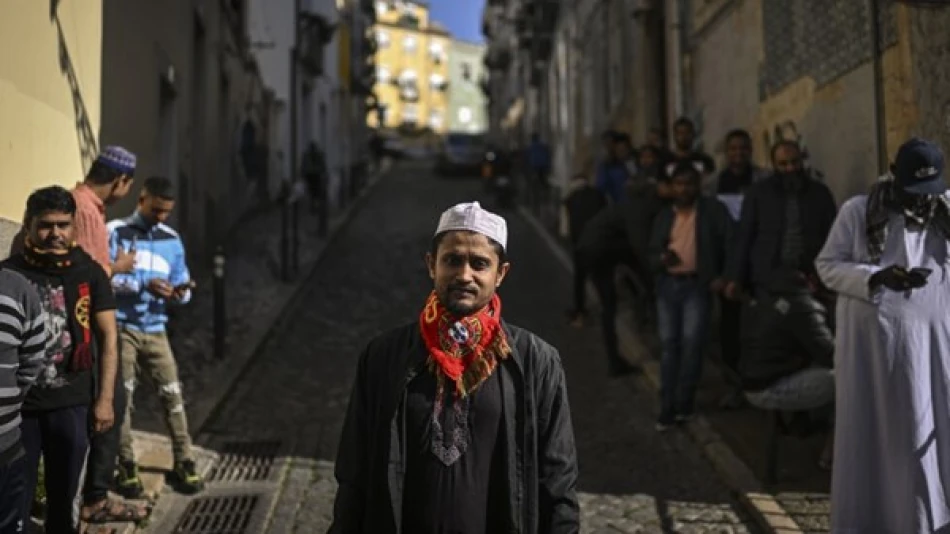
Portugal's Supreme Court Rejects Portions of Immigration Law, Sparks Debate on Migrant Rights
Portugal's Constitutional Court Blocks Immigration Crackdown, Forcing Government Reset
Portugal's Constitutional Court has rejected key provisions of the government's restrictive immigration law, dealing a significant blow to Prime Minister Luís Montenegro's center-right administration and forcing a complete legislative rewrite. The court's Friday ruling specifically targeted family reunification clauses, highlighting the growing tension between European immigration control efforts and constitutional protections as Portugal grapples with a foreign population that has quadrupled since 2017.
Constitutional Challenge Derails Immigration Reform
The court's intervention came after President Marcelo Rebelo de Sousa requested a constitutional review of the controversial legislation. Chief Justice José João Abrantes confirmed that the court found specific articles governing family reunification incompatible with Portugal's constitutional framework, effectively blocking the law's implementation.
Prime Minister Montenegro, anticipating potential legal challenges, had declared Thursday evening that his government would not abandon its immigration objectives even if forced to redraft the legislation. "If any provision is not fully compatible with constitutional principles, the majority will respect this decision and find a legal solution," he stated, signaling the administration's determination to pursue immigration restrictions within constitutional bounds.
Sweeping Changes Target High-Skilled Migration
The blocked legislation represented one of Europe's most comprehensive immigration policy reversals, targeting multiple pathways for legal migration. Beyond family reunification restrictions, the law would have eliminated job-seeker visas for highly qualified workers and removed preferential treatment for citizens from former Portuguese colonies, including Brazil.
These provisions reflected a broader European trend toward restricting economic migration, even for skilled workers, as governments respond to public concerns about integration capacity and housing pressures.
Policy Reversal Reflects Demographic Pressure
The legislative push comes as Portugal confronts unprecedented demographic change. By the end of 2024, foreign residents exceeded 1.5 million people—approximately 15% of the total population and four times the 2017 figure. This rapid transformation has strained public services and housing markets, creating political pressure for restrictive measures.
The government had already begun tightening immigration rules in 2023, eliminating provisions that allowed undocumented migrants to regularize their status by proving one year of employment and social security contributions. This earlier change removed a pathway that had enabled thousands of migrants to transition from irregular to legal status.
European Context and Economic Implications
Portugal's immigration restrictions mirror similar moves across Europe, where governments are balancing economic needs for foreign workers against public concerns about integration. However, the constitutional court's intervention demonstrates the legal constraints facing European governments seeking to restrict migration rights.
The policy reversal carries significant economic implications for Portugal, which has relied heavily on foreign workers to address labor shortages in construction, hospitality, and healthcare sectors. Restricting high-skilled migration pathways could undermine Portugal's competitiveness in attracting international talent, particularly as other European nations maintain more liberal skilled migration policies.
The government now faces the complex task of crafting immigration restrictions that satisfy both constitutional requirements and political demands for reduced migration flows, a challenge that will likely define Portugal's approach to demographic change in the coming years.
Most Viewed News

 Layla Al Mansoori
Layla Al Mansoori






